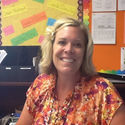-
About
- About Listly
- Community & Support
- Howto
- Chrome Extension
- Bookmarklet
- WordPress Plugin
- Listly Premium
- Privacy
- Terms
- DMCA Copyright
- © 2010-2025 Boomy Labs

 Debra Norton
Debra Norton
Listly by Debra Norton
Here are resources, web tools, articles and interesting finds about Personalized Learning collected by AASD educators.

A description of important parts of blended learning to implement in your class.

The majority of blended-learning programs resemble one of four models: Rotation, Flex, A La Carte, and Enriched Virtual. The Rotation model includes four sub-models: Station Rotation, Lab Rotation, Flipped Classroom, and Individual Rotation.

At P.K. Yonge Developmental Research School, integrating digital content with face-to-face learning has led to impressive gains in student achievement.

As schools start experimenting with educational software -- or blended learning -- teachers are trying to find ways of using tech to enhance learning in

Catlin Tucker, teacher and author of Blended Learning for Grades 4-12, shares how you can utilize blended instruction and technology in your classroom, wheth...

The 6 Steps to Flipping A Classroom Infographic synthesizes the overwhelming to-do list of flipping your classroom into 6 easy steps.

Guest blogger Jennifer Gonzalez proposes the In-Class Flip, a modified version of the flipped-learning model that incorporates the video lecture element as one of several stations that students visit during their class period.

This talk was given at a local TEDx event, produced independently of the TED Conferences. Blended Learning has become a catch phrase-- a buzzword for using t...

Education technology advocates, philanthropies, and others are trying to create a clearer definition of what qualifies as "personalized learning," one of the most popular terms in education today.

Most teachers who opt for the flipped classroom strategy are not pursuing a student-centered approach to learning. The traditional model is simply being reversed.

Educators share their best practices for tech-enabled pedagogy, from building capacity to implementing lessons to supporting teachers and students.

Learn how one educator has found a way to put a single iPad to use so the whole class benefits.

Project-based music is a way for students to personalize their learning, take ownership, use relevant technology, build upon and acquire new skills, and showcase their understanding to key learning outcomes—and yes, solve a real world “problem.” As with other types of personalized classrooms, project-based environments focus on learner outcomes and 21st century skills such as critical thinking, collaboration, creativity, and communication.

Get students engaged by transforming your classroom into a place where interactive experiences happen.

Flipped learning videos must encourage students to interact as well as watch. Here are seven low- and high-tech strategies to make sure this happens.

Millions of students worldwide get personalized recommendations from the most advanced adaptive learning platform. Learn how Knewton can power your digital course materials.

To challenge and support each child at his or her own level, the educators of Forest Lake Elementary deploy a powerful array of digital-technology tools. Discover what your school can learn.

No mobile devices in your classroom? No worries! You can enjoy Nearpod from any web browser :) Create, engage, and assess your students in every lesson!

Contact us at (866) 602-6686 in Little Chute, WI, to learn more about our charter school. A NEXT GENERATION SCHOOL FOR A NEW GENERATION OF STUDENTS. A Fox Cities K-8 Of Charter Schools

This talk was given at a local TEDx event, produced independently of the TED Conferences. Blended Learning has become a catch phrase-- a buzzword for using technology in the classroom!

Salman Khan talks about how and why he created the remarkable Khan Academy, a carefully structured series of educational videos offering complete curricula in math and, now, other subjects. He shows the power of interactive exercises, and calls for teachers to consider flipping the traditional classroom script -- give students video lectures to watch at home, and do "homework" in the classroom with the teacher available to help.

How teachers are finding new ways to meet each individual student’s needs, skills, and interests.

Technology-delivered personalized learning allows students to have a wide choice of what they learn, how they learn, and when.

Closing the Achievement Gap: Teaching Content. Article about the negative effects of Personalized Learning in the Core Knowledge curriculum.
